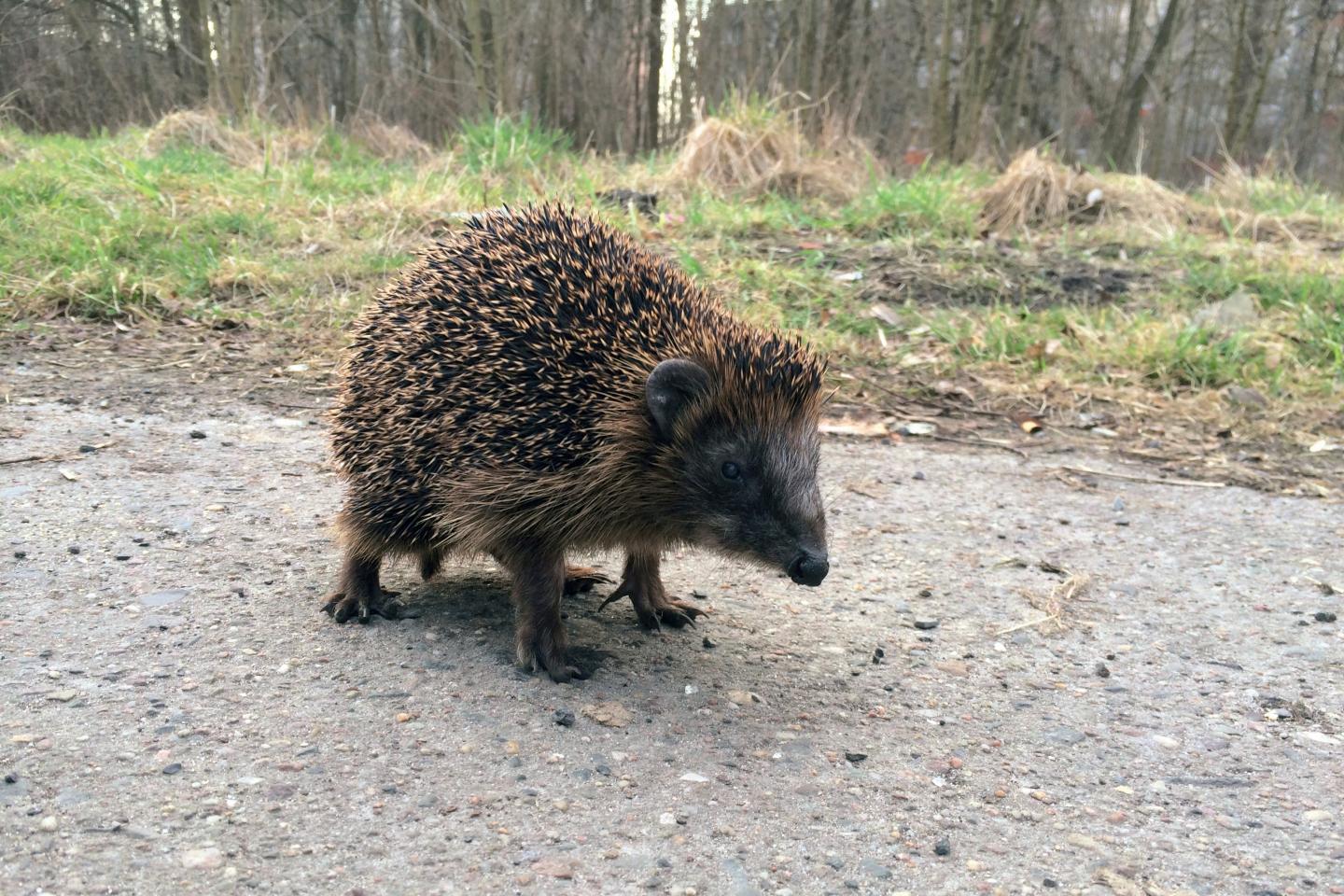
Credit: Photo: Juliane Seet
As cultural successors, hedgehogs reside in close proximity to humans. Close contacts, however, are not only beneficial but also bear risks for animals and humans. Road traffic, lawn mowers and infectious agents threaten the prickly insect eaters. Some infectious agents can be transmitted to humans. Considerate treatment of wildlife and appropriate hygiene measures minimize the risk of infection, though. A recent study, initiated by the National Consiliary Laboratory for Diphtheria (CL-Diphtheria) in Germany and conducted in close collaboration of five federal state laboratories and the Leibniz Institute for Zoo and Wildlife Research (Leibniz-IZW), identified Corynebacterium ulcerans – a close relative of the diphtheria causing bacterium – in hedgehogs. The study is published in „Emerging Microbes & Infections“.
Diphtheria is a bacterial disease of humans affecting the upper respiratory tract. The etiologic agent Corynebacterium diphtheria can harbor a specific diphtheria toxin gene. Diphtheria is very rare in countries with high immunization coverage such as Germany, although C. diphtheria associated skin or wound infections occur more frequently over the past years in long-distance travelers. Germany has recognized an increase of infections with Corynebacterium ulcerans too, a close relative to C. diphtheria that often carries a diphtheria-like toxin gene and has now been found in hedgehogs. A bulletin published from the National Consiliary Laboratory for Diphtheria concluded that C. ulcerans occurs in a variety of animal species without or with disease symptoms such as lymph node abscesses, wound or respiratory infections. „There are clear transmission events from infected pets to the owners of dogs and cats “, comment the initiators of the study Anja Berger and Andreas Sing from CL-Diphtheria. Corresponding case numbers are low but the risk of animal-to-human transmission should raise public health awareness towards emerging C. ulcerans infections. The bacterium has already been detected in different native wildlife species such as red fox, wild boar and roe deer. This study provides the first evidence of diseased hedgehogs infected by C. ulcerans.
“The results should raise a greater awareness and responsibility for our neighborhood”, explains Kristin Mühldorfer, researcher at Leibniz-IZW’s Department of Wildlife Diseases. Wild animals can carry infectious agents and parasites relevant for human health. Likewise, infectious agents from humans and domestic animals can affect the health of wild animals. Considerate care and hygiene measures are mandatory to safely handle wild animals such as hedgehogs. This includes proper hand washing with soap and warm water or appropriate use of hand sanitizers after animal contacts. „Particularly people at higher risk working with wild animals should be aware – which includes veterinarians, professionals and volunteers in wildlife rehabilitation and sanctuaries”, state the authors. Adequate vaccination is essential for protection against diphtheria and should be refreshed regularly.
A respectful distance from wildlife enables cohabitation between humans and animals even in close proximity. Weak, sick or injured wild animals should only be handled and nursed by experienced people, who have animal specific knowledge and approval. Wildlife samples from animals showing signs of bacterial disease can be shipped on request to the participating federal state laboratories or the Leibniz-IZW for investigation. In addition, the German CL-Diphtheria would further characterize confirmed Corynebacterium isolates on request.
###
Contact participating institutes
Dr. Anja Berger & Prof. Dr. Dr. Andreas Sing
Approved specialists for medical microbiology and epidemiology
National Consiliary Laboratory for Diphtheria
Bavarian Health and Food Safety Authority, Oberschleißheim
E-Mail: [email protected]; [email protected]
Dr. Martin Peters
Approved specialist for veterinary pathology and microbiology
Chemisches und Veterinäruntersuchungsamt (CVUA) Westfalen, Arnsberg
E-Mail: [email protected]
Dr. Kristin Mühldorfer
Approved specialist for veterinary microbiology
Department Wildlife Diseases at the Leibniz-IZW, Berlin
E-Mail: [email protected]
Dr. Silke Braune
Department Bacteriology, Mycology and Parasitology
Lower Saxony State Office for Consumer Protection and Food Safety
Food and Veterinary Institute, Hannover
E-Mail: [email protected]
Dr. Tobias Eisenberg
Approved specialist for veterinary microbiology
Department Bacteriological and Mycological Diagnostics
Landesbetrieb Hessisches Landeslabor (LHL), Gießen
E-Mail: [email protected]
Dr. Jörg Rau
Department Food of Animal Origin
Expertise in MALDI-TOF MS and FT-IR
Chemisches und Veterinäruntersuchungsamt Stuttgart (CVUAS), Fellbach
E-Mail: [email protected]
Press contact at the Leibniz-IZW
Jan Zwilling
Science Communication
Leibniz Institute for Zoo and Wildlife Research (Leibniz-IZW)
At the Forschungsverbund Berlin e.V.
Alfred-Kowalke-Straße 17, 10315 Berlin
Tel: +49 (0)30 5168121
E-Mail: [email protected]
Media Contact
Jan Zwilling
[email protected]
Related Journal Article
http://dx.




